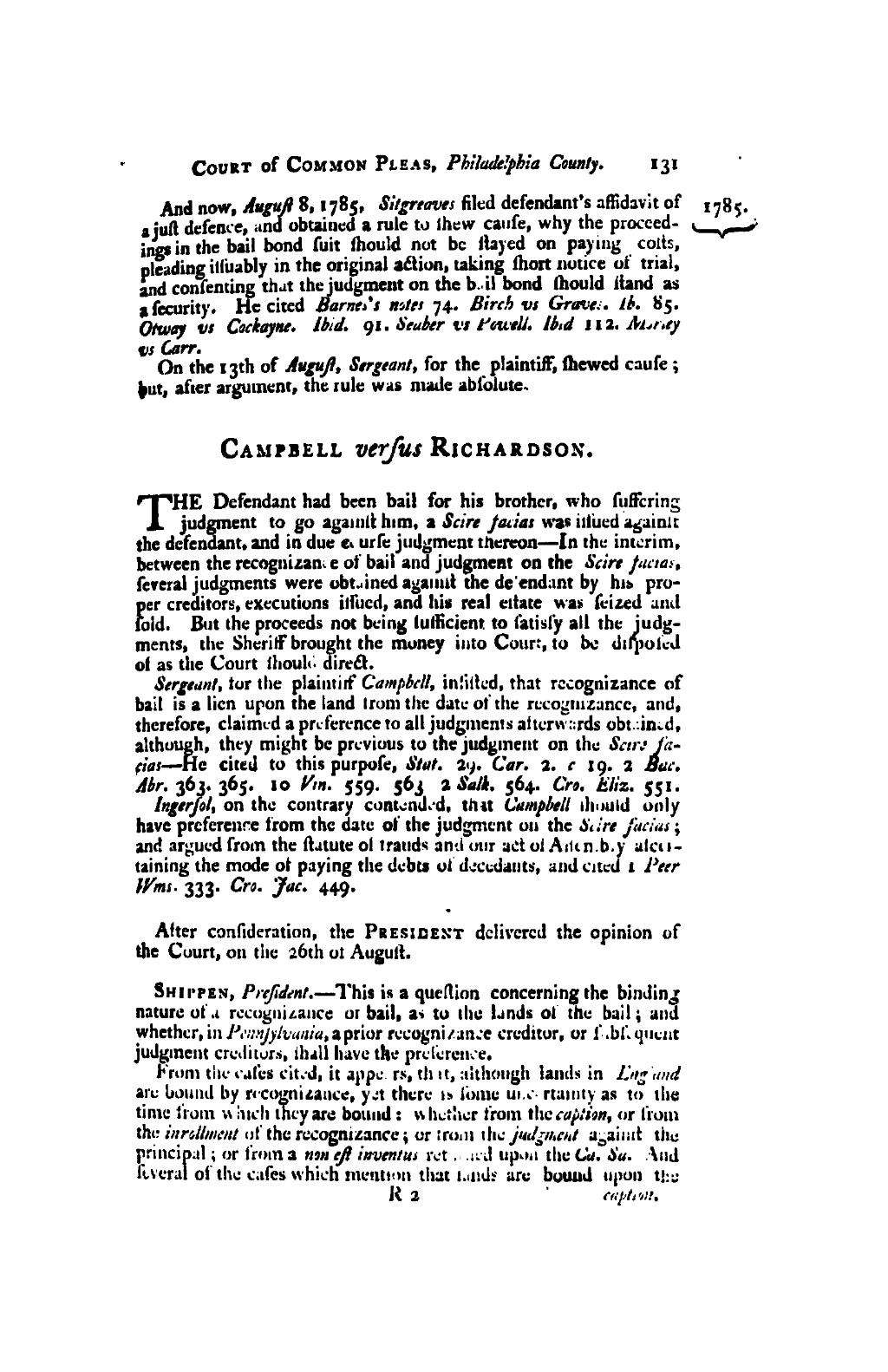1785.![]()
And now, Auguʃt 8, 1785, Sitgreaves filed defendant's affidavit or a juft defence, and obtained a rule to fhew caufe, why the proceedings in the bail bond fuit fhould not be ftayed on paying cofts, pleading infuabbly in the original action, taking fhort notice of trial, and confenting that the judgment on the bail bond fhould ftand as a fecurity. He cited Barnes's notes 74. Birch vs Graves ib. 85. Otway vs Cockayne. Ibid. 91. Seaber vs Powell. Ibid. 112. Moriey vs Carr.
On the 13th of Auguʃt, Sergeant, for the plaintiff, shewed caufed ; but, after argument, the rule was made abfolute.
CAMPBELL verʃus RICHARDSON.
T
HE Defendant has been bail for his brother, who fuffering judgment to go againft him, a Scire ƒacias was iffued againft the defendant, and in due (illegible text) urfe judgment thereon—In the interim, between the recognizance of bail and judgment on the Scire ƒacias, feveral judgments were obtained againft the defendant by his proper creditors, executions iffued, and his real eftate was feized and fold. But the proceeds not being fufficient to fatisfy all the judgments, the Sheriff brought the money into Court, to be difpofed of as the Court fhould direct.
Sergeant, for the plaintiff Campbell, infifted, that recognizance of bail is a lien upon the land from the date of the recognizance, and, therefore, claimed a preference to all judgments on the Scire ƒacias—He cited to this purpofe, Stat. 29. Car. 2. c 19.2 Bac. Abr. 363. 365. 10 Vin. 559. 563 2 Salk. 564 Cro. Eliz. 551.
Ingerʃol, on the contrary contended, that Campbell should only have preference from the date of the judgment on the Scire ƒacias ; and argued from the ftatute of frauds and our acct of Affembly (illegible text)taining the mode of paying the debts of descendants, and cited 1 Peer Wms. 333 Cro. Jac. 449.
After confideration, the president delivered the opinion of the Court, on the 26th of Auguft.
shippen, Preʃident.—This is a queftion concerning the binding nature of a recognizance or bail, as to the lands of the bail ; and whether, in Pennʃylvania, a prior recognizance creditor, or fubfequent judgment creditors, fhall have the preference.
From the cafes cited, it appears, that, although lands in England are bound by recognizance, yet there is fome uncertainty as to the time from which they are bound : whether from the caption, or from the inrollment of the recognizance ; or from the judgment againft the principal ; or from a non eʃt inventus returned upon the Ca. Sa. And feveral of the cafes which mention that lands are bound upon the
